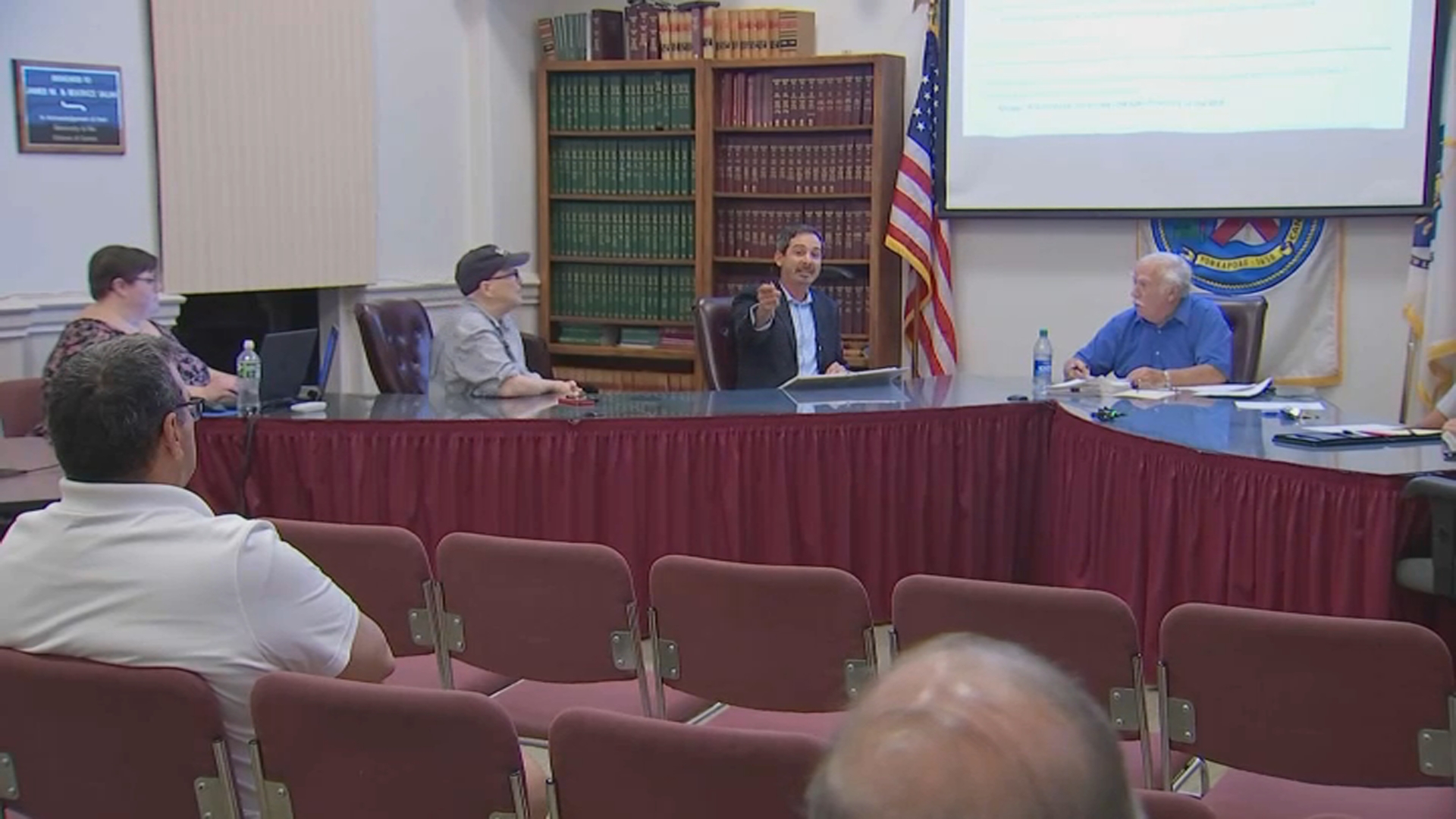A breakthrough program developed at the Boston VA medical center is helping heal the psychological and physical wounds of war. It tailors treatments to veterans struggling to adjust to civilian life by treating all the health issues at the same time instead of individually.
Like so many of America’s veterans, John Spagna returned from war a fractured and fragmented image of his former self.
"Transitioning, basically from a war zone back into civilian life, was really tough for me," he said. "I'd say it took about five or six years before I would even leave my own home."
Spagna was in the U.S. Marine Corps in the 1980s and then re-enlisted in 2002 to join the National Guard. He was later deployed to Iraq between 2009 and 2012.

The physical and psychological scars from three years of driving transport vehicles in Iraq have been slow to callus over. When Spagna came home he brought the war back with him.
"We would never ride on the left side or right sides for fear of, IEDs. Roadside bombs. I took that home with me," Spagna said. "I'm driving down the highways or even, back roads and I'm driving right down the middle of the road."
Today, he finds himself headed in a new direction. Researchers at the VA Medical Center in Jamaica Plain poke and prod him before a brain scan. That will help doctors at the Translational Research Center for Traumatic Brain Injuries and Stress Disorders or TRACTS, connect the dots between Spagna's trauma and his difficult transition home.

Each piece of data is a different piece of the puzzle. Put them together and a holistic picture forms.
Local
One that can help determine Spagna’s risk for diseases like dementia, high blood pressure, and better understand his psychological issues.
Dr. Bill Milberg and Dr. Cate Fortier are co-directors of TRACTS. Since 2009, they’ve studied the psychological impact of deployments in nearly 1,000 post-9/11 veterans. They’re collecting an unprecedented level of scientific detail from every participant all under one roof.
"Each and every veteran that comes through, the puzzle is a little bit different, but we put it together and we understand the commonalities overall that many of the veterans do share," said Fortier.
Milberg showed us a detailed MRI scan of Spagna’s brain inside one of their reading rooms.

"You can see over here where this red line is moving that we're moving further and further down to the bottom of the brain," Milberg said.
On the day NBC10 Boston visited, Spagna was going in for a detailed MRI and EEG scan that pulls millions of pieces of data from his brain.
Milberg said that’s translated into diagnostics and treatment which gives them an understanding of the big picture of what’s going with the participants.
What's unique about TRACTS is that everything is on-site. A veteran can come in and get numerous diagnostic tests, scans, and go through extensive personal interviews.

Spagna has now moved into the center's Step-Home program. That's where therapists like TRACTS clinical director Dr. Alexandra Kenna help him deal with his PTSD. She says Step-Home emphasizes a "holistic" approach to treating veterans.
“When you send them to a specialty clinic to just focus on one thing, it doesn't really address the bigger picture of how all of those issues are interacting together,” said Kenna.
Dylan Katz is program director of TRACTS and co-leader of the Step-Home Program.
He said since the 12-week program moved online during the pandemic, veterans can now participate virtually in the weekly workshops from anywhere in the country.
"This can be like a stepping stone to get more VA care with other clinics," said Katz.
The goal now is to duplicate that sort of success for more veterans no matter how their transition back to civilian life may differ.
"In order to really take care of this generation of veterans, one has to understand that you have to look at a lot of things at the same time and treat a lot of problems at the same time, not just isolate them one at a time," said Milberg.

For Spagna Step-Home has gradually helped him put his life back together.
"I think they feel validated and understood, by the research being focused on the things that they care most about and that they feel that we got it in a way that no one else has before," said Fortier.
Spagna said he’s been opening up a lot more to his family about his experiences over in Iraq. But there are still a few pieces of the puzzle missing. He knows with time the fractured and fragmented version of the man who returned from war will finally see things fall into place.
"It's brought me to a point where nothing really bothers me. Without it, I don't know where I'd be right now," said Spagna.
TRACTS just received additional funding to keep the Step-Home workshops up and running. They’re always looking for more participants and some groups are still available for this spring.
Because the workshops are now virtual, the program has been able to help veterans in 30 states. The hope is this treatment program will soon be rolled out to VA medical centers across the country.



